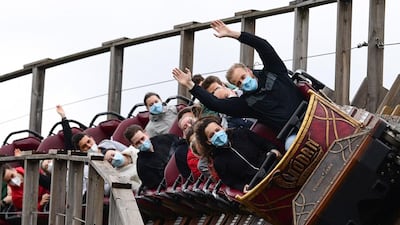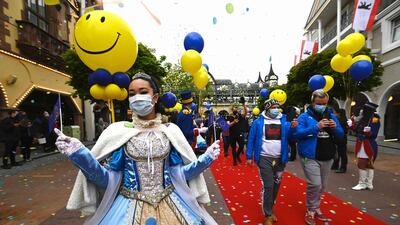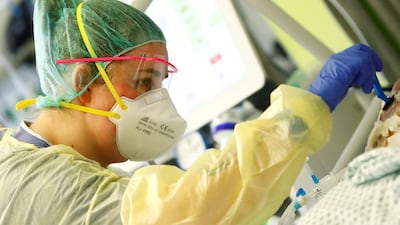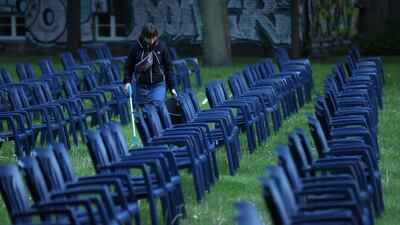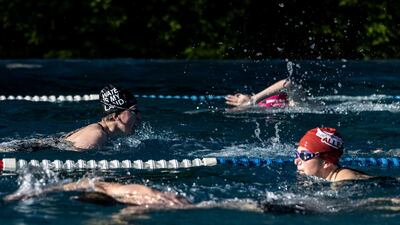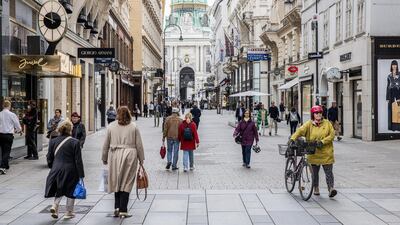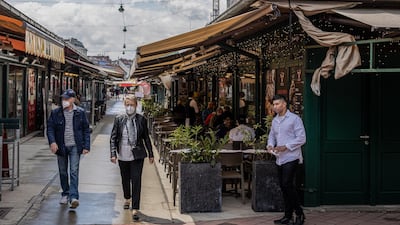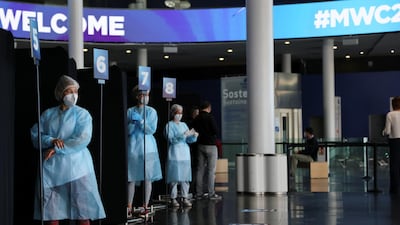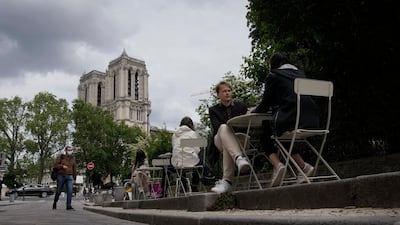UN Secretary General Antonio Guterres has called for the "logic and urgency of a war economy" to increase Covid-19 vaccine production and ensure poor countries are not left behind in pandemic recovery efforts.
In declaring that the world was at “war with a virus,” he described vaccines as “our weapons” and urged wealthier countries to play their part in bolstering manufacturing capacity.
Last week, the UN chief suggested G20 countries set up a task force that would bring together financial institutions and nations with production capabilities to spearhead a campaign to end the pandemic.
"It should aim to at least double manufacturing capacity by exploring all options, from voluntary licences and technology transfers to patent pooling and flexibility on intellectual property rights," Mr Guterres told the annual meeting of World Health Organisation member states, which was mostly conducted virtually.
Warning against "a two-speed global response", he said further waves of the coronavirus surges could kill hundreds of thousands, while hampering economic recovery efforts.
"Sadly, unless we act now we face a situation in which rich countries vaccinate the majority of their people and open their economies, while the virus continues to cause deep suffering by circling and mutating in the poorest countries," he said.
WHO Director General Tedros Adhanom Ghebreyesus told the meeting that at least 115,000 health and care workers have died from Covid-19, which has killed more than 3.64 million people globally.
He called on the global community to vaccinate at least 10 per cent of each country’s population by September and 30 per cent by the end of the year.
“There is no diplomatic way to say it – a small group of countries that make and buy the majority of the world’s vaccines control the fate of the rest of the world,” he said.
Global leaders are speaking at the gathering as they try to plot their way out of the pandemic and ensure the world is better prepared for health emergencies.
Two of the EU’s most powerful figures said the WHO should be empowered with lasting support.
French President Emmanuel Macron said the health body must be “robust” and “flexible” in times of crisis.
“It must be completely transparent to make sure that people trust the organisation. There must not be any political pressure and there must not be any suspicion of pressure that has been exerted,” he said.
Germany’s Chancellor Angela Merkel backed a global health threats council, suggested previously by an independent WHO panel, to improve prevention and response.
“The pandemic reminds us in particular of just how important international co-operation is. The WHO should therefore continue to play a leading role in global health care,” she said.
“If it is to do so, however, we must provide it with lasting financial and personnel support. We have been talking about this for years but now it is all the more important to act.”











